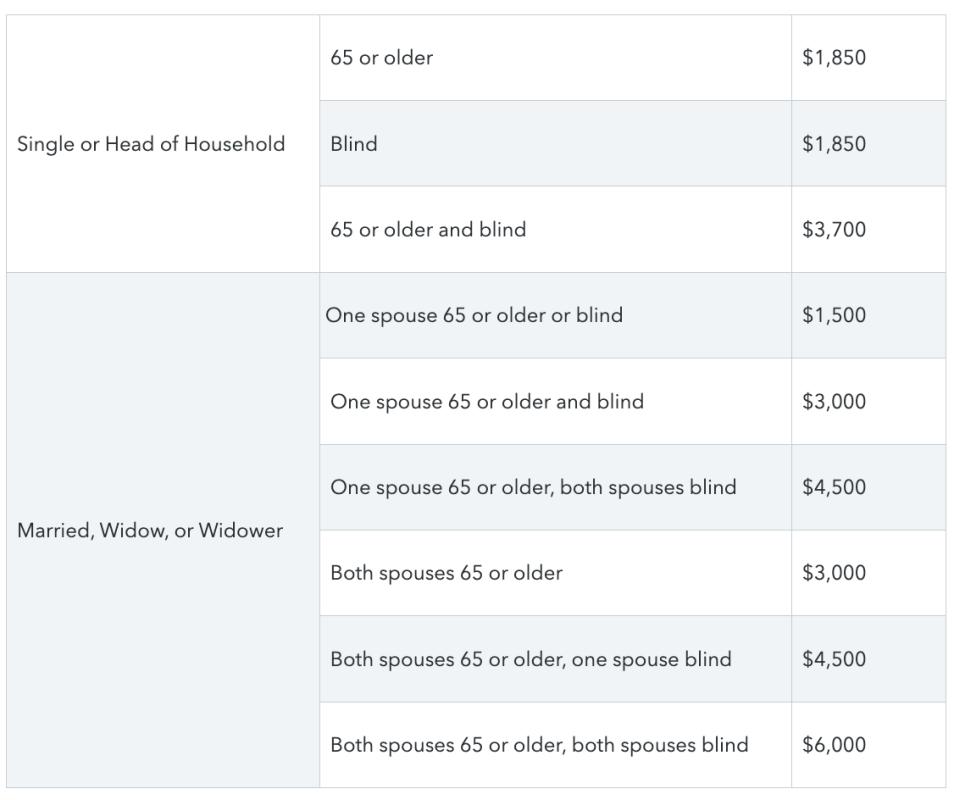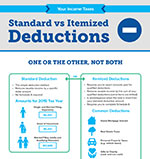The Foreign Earned Revenue Exemption Explained: A Guide to Enhancing Your Standard Reduction
The Foreign Earned Earnings Exclusion (FEIE) is an important tax obligation stipulation for U.S. citizens and resident aliens living abroad. It permits eligible expatriates to exclude a significant section of their foreign-earned earnings from federal taxes. Comprehending the nuances of FEIE can lead to substantial tax obligation cost savings. Several individuals forget essential details that can influence their qualification and advantages. Discovering these elements might expose opportunities for boosted tax results.
Understanding the Foreign Earned Revenue Exclusion
Although lots of expatriates look for possibilities abroad, recognizing the Foreign Earned Earnings Exemption (FEIE) is crucial for handling their tax responsibilities. This arrangement permits U.S. residents and resident aliens living overseas to leave out a particular amount of their earned earnings from federal tax. The FEIE was established to minimize the tax obligation worry on people who stay outside the USA, recognizing the one-of-a-kind monetary challenges they may deal with.

Qualification Requirements for FEIE

Just how to Declare the FEIE
To efficiently assert the Foreign Earned Revenue Exclusion (FEIE), taxpayers need to first confirm their qualification based on details criteria - FEIE Standard Deduction. The procedure includes several steps, consisting of submitting the ideal types and providing necessary paperwork. Understanding these demands and treatments is important for optimizing tax benefits while living abroad
Eligibility Requirements
Eligibility for the Foreign Earned Earnings Exclusion (FEIE) rests on conference specific requirements established by the internal revenue service. To certify, individuals should be U.S. citizens or resident aliens that make earnings while functioning abroad. They require to establish a foreign tax home, which indicates their major business is outside the United States. In addition, candidates need to fulfill either the Bona Fide Home Examination or the Physical Existence Examination. The Authentic Home Examination needs that a taxpayer resides in an international nation for an entire tax obligation year, while the Physical Visibility Examination requires spending a minimum of 330 full days in an international nation throughout a 12-month period. Satisfying these demands is crucial for asserting the FEIE.
Declaring Process Steps
Just how can one successfully navigate the procedure of claiming the Foreign Earned Earnings Exemption (FEIE)? Individuals should determine their eligibility based on the physical presence examination or the bona fide house examination. Once confirmed, they ought to complete internal revenue service Kind 2555, which information foreign income and residency. This kind should be affixed to their annual tax obligation return, usually Form 1040. It is important to accurately report all international gained revenue and warranty conformity with the IRS guidelines. In addition, taxpayers must maintain correct documents, such as foreign income tax return and proof of residency. By adhering to these actions, individuals can successfully assert the FEIE and potentially reduce their gross income considerably, improving their general economic setting.
Calculating Your International Earned Income Exemption
While lots of expatriates look for to maximize their economic benefits abroad, recognizing the computation of the Foreign Earned Income Exemption is vital for accurate tax obligation coverage. The Foreign Earned Earnings Exemption enables certifying individuals to leave out a certain quantity of their foreign incomes from united state tax, which is readjusted yearly for rising cost of living. To determine this exemption, expatriates should establish their total foreign gained income, which normally includes earnings, wages, and expert fees made while staying in a foreign nation.
Next, they need to complete internal revenue service Kind 2555, offering information concerning their international residency and work condition. FEIE Standard Deduction. It is very important to fulfill either the bona fide home test or the physical visibility test to get approved for his explanation the exclusion. As soon as these factors are established, the optimum allowed exclusion amount is used, lowering the individual's gross income significantly. Precise estimations can check this bring about substantial tax cost savings for expatriates living and functioning abroad
The Influence of FEIE on Various Other Tax Obligation Benefits
The Foreign Earned Income Exclusion (FEIE) can influence an individual's eligibility for specific tax obligation advantages, consisting of the basic deduction. By omitting foreign made earnings, taxpayers may discover their adjusted gross earnings influenced, which subsequently can impact their certification for different tax debts. Understanding these interactions is vital for optimizing tax obligation end results while living abroad.
Communication With Requirement Deduction
When individuals get approved for the Foreign Earned Revenue Exemption (FEIE), their qualification for the common deduction may be affected, possibly modifying their general tax liability. The FEIE allows taxpayers to leave out a specific amount of earned revenue from united state tax, which can result in a reduced gross income. Consequently, if the left out earnings surpasses the basic deduction, it can decrease the advantage of declaring that reduction. Furthermore, taxpayers who utilize the FEIE may find that their capacity to make a list of deductions is additionally affected, as specific expenses might be affected by the exclusion. Understanding this communication is necessary for expatriates to maximize their tax obligation advantages while making sure compliance with U.S. tax obligation legislations
Qualification for Tax Obligation Credit Scores
Guiding with the intricacies of tax credit histories can be challenging for expatriates, especially considering that the Foreign Earned Income Exemption (FEIE) can significantly influence eligibility for these advantages. The FEIE allows qualified people to omit a substantial part of their foreign profits from U.S. tax, yet this exclusion can additionally influence access to different tax obligation debts. For circumstances, taxpayers that utilize the FEIE may discover themselves disqualified for credits like the Earned Revenue Tax Credit (EITC), as these credit histories typically require taxable earnings. Furthermore, the exclusion may limit the capability to declare specific deductions or debts related to dependents. Recognizing the interaction in between the FEIE and offered tax obligation debts is essential for migrants intending to enhance their tax obligation circumstance.

Common Blunders to Avoid When Asserting FEIE
Typically, expatriates experience several risks while claiming the Foreign Earned Earnings Exemption (FEIE), which can cause pricey errors or missed out on possibilities. One frequent mistake is stopping working to meet the physical existence or authentic home test, which is essential for eligibility. Furthermore, migrants often neglect the demand to submit Kind 2555 appropriately, resulting in incomplete or unreliable entries.
Another common error includes improperly determining international gained revenue, as several do not account for all relevant income sources. Some expatriates incorrectly presume they can omit all their earnings, uninformed of the restrictions on the exclusion amount. Additionally, overlooking to maintain proper documentation, such as traveling days and residency condition, can endanger an insurance claim. Misconstruing the effects of the FEIE on various other tax credit scores may lead to unintended tax liabilities. Awareness of these challenges can assist in Continued a smoother declaring process and make the most of possible advantages.
Resources for Expats Navigating U.S. Taxes
Navigating U.S. tax obligation responsibilities can be challenging for migrants, especially after coming across risks in asserting the Foreign Earned Income Exclusion (FEIE) To help browse these intricacies, a range of sources are available. The internal revenue service internet site offers extensive info on tax faqs, types, and regulations particularly customized for expatriates. Furthermore, companies like the American Citizens Abroad (ACA) and the Expat Tax obligation Professionals offer support and assistance to guarantee compliance with tax obligation laws.
On the internet discussion forums and neighborhoods, such as the Deportee Forum, permit expatriates to share experiences and understandings, fostering a helpful setting for those dealing with comparable obstacles. Tax preparation software application, like copyright and H&R Block, usually consists of features designed for expats, making the filing process much more user-friendly. Engaging with these resources can empower expatriates to better understand their tax obligations and make best use of advantages like the FEIE.
Frequently Asked Questions
Can I Claim FEIE if I'M Self-Employed Abroad?
Yes, self-employed individuals abroad can declare the Foreign Earned Revenue Exemption (FEIE) To certify, they need to satisfy particular needs pertaining to residency and revenue, ensuring they stick to IRS guidelines for migrants.

Is the FEIE Applicable to Foreign Pensions?
The Foreign Earned Earnings Exclusion (FEIE) is not appropriate to international pension plans. Pensions are considered unearned revenue and do not certify for the exclusion, which specifically uses to made income from work or self-employment abroad.
What Occurs if I Return to the United State Mid-Year?
If a private returns to the united state mid-year, they may require to adjust their tax scenario. Their qualification for particular reductions and exclusions, consisting of the Foreign Earned Earnings Exemption, might be affected by their residency standing.
Can FEIE Be Claimed With Various Other Deductions?
Yes, the Foreign Earned Revenue Exclusion (FEIE) can be asserted together with other reductions. Care must be taken to assure appropriate conformity with tax obligation guidelines, as specific limitations might use based on private situations.
Just How Does FEIE Impact State Tax Obligation Responsibilities?
The Foreign Earned Income Exemption can reduce a taxpayer's government earnings tax obligation obligation, yet it does not immediately influence state tax obligations, which vary by state and might still require reporting of international revenue.
Numerous migrants look for chances abroad, recognizing the Foreign Earned Revenue Exemption (FEIE) is essential for handling their tax responsibilities. By omitting international earned income, taxpayers may discover their modified gross revenue influenced, which in turn can influence their qualification for various tax credit reports. Guiding via the intricacies of tax obligation credit histories can be testing for migrants, specifically given that the Foreign Earned Revenue Exemption (FEIE) can substantially influence qualification for these advantages. Taxpayers that make use of the FEIE might locate themselves disqualified for credit scores like the Earned Earnings Tax Debt (EITC), as these credit ratings generally require taxable income. Maneuvering United state tax obligation commitments can be testing for migrants, particularly after experiencing mistakes in claiming the Foreign Earned Income Exemption (FEIE)